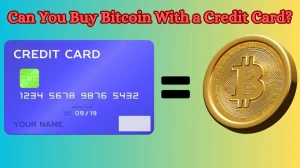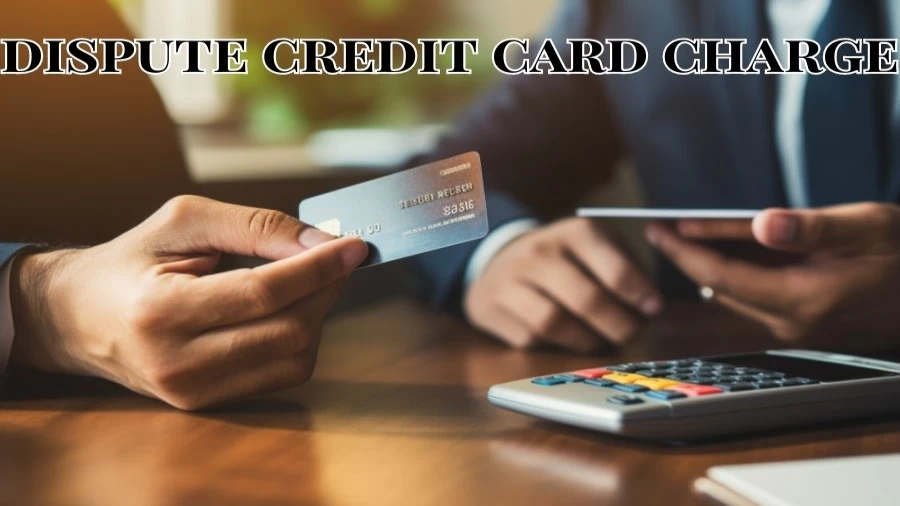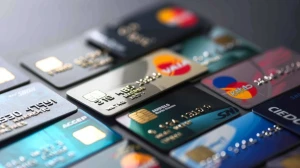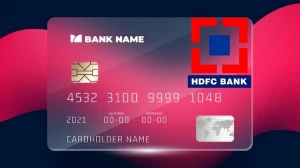
- Home »
- Credit Card »
- Dispute Credit Card Charge, How to Dispute a Credit Card Charge?
Dispute Credit Card Charge, How to Dispute a Credit Card Charge?
Within the Fair Credit Billing Act, disputing credit card charges is your right by notifying your issuer within 60 days in writing; if unresolved, card companies must adhere to time frames, leading to permanent credits or payment notices based on validity.
by Sangamithra
Published Aug 21, 2023 | Updated Aug 21, 2023 | 📖 8 min read
On This Page
- Dispute Credit Card Charge
- How to Dispute a Credit Card Charge?
- Can I Dispute a Credit Card Charge That I Willingly Paid for?
- How Long Do You Have to Dispute a Credit Card Charge?
- What Happens if You Falsely Dispute a Credit Card Charge?
- How Far Back Can You Dispute a Credit Card Charge?
- What Are the Outcomes if a Credit Card Dispute is Declined?
- Does Initiating Credit Card Disputes Negatively Impact Your Credit Score?
- When Should You Refrain From Filing a Dispute?
Dispute Credit Card Charge
If you encounter an error in the billing of your credit card account, you possess the entitlement to contest it. As outlined by the Fair Credit Billing Act (FCBA), it is required that you send a written notification regarding the billing error to your credit card company within a span of 60 calendar days from the moment the charge is visible on your statement.
Following the initiation of a dispute, the card issuer is allocated 90 days to conduct an inquiry and subsequently address the dispute or furnish a written explanation delineating the grounds for dismissing the dispute. To challenge a charge on your credit card, you have the option to dial the contact number located on the rear side of your credit card and express your intention to dispute a particular charge.
A representative will gather the requisite details from you and officially lodge the dispute. Alternatively, you also have the option to present your dispute in written form, which aligns with the guidelines stipulated by the FCBA.
How to Dispute a Credit Card Charge?
If an individual suspects an erroneous credit card charge on their statement, the customary initial step is to establish contact with the involved merchant. Should they manage to resolve the matter satisfactorily through this channel, there is no immediate requirement to involve the credit card company.
Nevertheless, if an amicable resolution is unattainable or the merchant declines to reimburse the disputed transaction, the person in question has the option of instigating a charge dispute.
In cases where the charge is entirely unfamiliar and suggests potential fraud, the person should promptly engage their credit card company and may also consider seeking assistance from law enforcement. If unauthorized charges are being made due to stolen credit card details, filing a police report could be advisable.
To dispute a charge with their credit card company, the individual can:
- Initiate a call to the customer service number provided on the back of their credit card or within their statement.
- Reach out to customer service via email communication.
- Utilize the financial institution's app to initiate the dispute process.
- Lodge the dispute in written form, usually by following the address provided on their statement.
Once a charge dispute has been initiated, the credit card company is mandated to acknowledge receipt of the dispute within 30 days. Subsequently, they are given a span of two billing cycles (not exceeding 90 days) to resolve the dispute.
In instances where the bill subject to dispute remains unsettled, the individual might receive a provisional credit until the dispute is resolved. If the credit card company validates the dispute, the provisional credit is transitioned into a permanent credit. However, if provisional credit was not granted initially, the disputed amount must be expunged from the statement.
In cases where the bill has already been settled, the individual still retains the option to dispute it. Nevertheless, any prospective reimbursement may not be forthcoming until the credit card company concludes its investigation and validates the claim. Upon the conclusion of the investigation, if the credit card company concludes that the charge is legitimate, they are mandated to furnish a written notification to the individual.
This communication will delineate the amount due and the corresponding deadline for payment. In such instances, any provisional credit previously extended would be revoked.
Can I Dispute a Credit Card Charge That I Willingly Paid for?
Yes, there are instances where you can initiate a dispute for a credit card charge that you voluntarily settled. This encompasses scenarios such as billing discrepancies, receiving items in an unsatisfactory condition, or not obtaining the complete services as originally assured. In essence, the answer is affirmative – under certain circumstances, you have the right to contest credit card charges that you consciously made and subsequently paid for.
This aligns with the provisions outlined in the Fair Credit Billing Act, which furnishes consumers with safeguards concerning their credit transactions. Whether it involves a billing error or the non-fulfillment of promised goods and services, the avenue of credit card disputes provides individuals with a means to recover their funds from their purchases.
How Long Do You Have to Dispute a Credit Card Charge?
In the realm of disputing credit card charges, a specific timeframe governs such actions. Individuals are granted the duration of two billing cycles, equivalent to 60 days, to initiate a dispute. Should the choice be made to communicate the dispute via traditional mail, the pivotal factor lies in the letter's delivery to the creditor within the 60-day period from the billing statement where the disputed charge made its debut.
To ensure not only delivery but also acknowledgment of communication, employing certified mail and requesting a return receipt is a prudent step. For those who opt for the convenience of online channels, the same 60-day deadline applies. In essence, any online submission for dispute resolution must be undertaken within this stipulated time frame to adhere to the acceptable window for dispute filing.
This structured timeline aims to provide individuals with a reasonable and equitable opportunity to address any discrepancies or concerns related to credit card charges on their billing statements. It ensures a balanced and streamlined process that benefits both the cardholder and the credit card issuer.
What Happens if You Falsely Dispute a Credit Card Charge?
Falsely disputing a credit card charge can have serious repercussions. It's considered fraudulent behavior and can lead to legal consequences. If someone is found to have intentionally filed a false dispute, they could face penalties such as fines or even imprisonment, depending on the severity of the case. Both credit card issuers and merchants take fraudulent disputes seriously and may take legal action to protect their interests.
Additionally, making false claims erodes trust in the dispute resolution process, potentially leading to challenges for legitimate cases. It's crucial to approach credit card disputes with honesty and accuracy to maintain the integrity of the system and avoid legal trouble.
How Far Back Can You Dispute a Credit Card Charge?
As stipulated by the Fair Credit Billing Act (FCBA), there's a 60-calendar-day window commencing from the date the charge is displayed on your statement within which you can contest a billing error with your credit card issuer.
After initiating the dispute, the issuer is allotted a period of 90 days to conduct an investigation and subsequently address the dispute by either resolving it or furnishing a written elucidation outlining the grounds for rejecting the dispute.
The FCBA provisions ensure that consumers have a specific timeframe to rectify billing discrepancies and provide credit card issuers a reasonable duration to diligently investigate and respond to disputes, contributing to a fair and structured resolution process.
What Are the Outcomes if a Credit Card Dispute is Declined?
In the event that your dispute is not upheld, the charged amount will be reinstated to your credit card account. You should expect to receive a detailed explanation from the credit card issuer outlining the grounds for the denial of the dispute. If you choose not to settle the charge, the credit card issuer holds the authority to transfer your account to collections or initiate legal proceedings.
Credit card companies may decline a dispute claim for several potential reasons:
- Inaccurate information was provided.
- Insufficient evidence of an error or unauthorized charge.
- The charge surpasses a certain time frame.
- The transaction occurred outside of the United States.
- Lack of evidence of returned goods or services.
- Absence of attempts to address the issue with the merchant.
If you disagree with the decision, you can formally appeal by submitting a written response, granting you an additional opportunity to present supporting evidence. Alternatively, you have the option to lodge a complaint with the Consumer Financial Protection Bureau (CFPB).
Does Initiating Credit Card Disputes Negatively Impact Your Credit Score?
Initiating credit card disputes doesn't influence your credit score directly; however, the credit card issuer might append a notation to your credit report indicating an ongoing dispute, which is removed upon resolution.
While you're investigating disputed charges, you're not obligated to make payment for those specific charges. Yet, you're still responsible for meeting the minimum payment requirement. Neglecting this could lead to a recorded instance of a missed or late payment, potentially affecting your credit score adversely. Should the dispute conclude with you being accountable for the charge, payment will be necessary.
When Should You Refrain From Filing a Dispute?
Disputing a credit card charge can be a viable option in various scenarios, yet it's important to recognize its limitations. Some individuals consider the dispute process as an alternative to a merchant's return or refund policy when they're dissatisfied with a purchase, according to experts.
However, credit card disputes shouldn't replace a merchant's established policies for returns or refunds. Instead, the recommended initial approach is to attempt to communicate with the merchant for a refund, experts advise. Skipping this step and going directly to a dispute might not yield the desired outcome. It's essential not to misuse the dispute process for cases of buyer's remorse, another expert emphasizes.
Using disputes to evade payment for legitimate purchases can lead to increased costs for everyone. If resolving an issue with a product or service directly with the merchant proves unsuccessful, then considering a dispute might be more appropriate.
Dispute Credit Card Charge - FAQ
1. Can I dispute a credit card charge I willingly paid for?
Yes, you can dispute charges that you voluntarily paid if there are billing errors or issues with received goods/services, as protected by the Fair Credit Billing Act.
2. How long do I have to dispute a credit card charge?
You have up to 60 days or two billing cycles, depending on the method of dispute submission, to initiate a credit card charge dispute.
3. What happens if I falsely dispute a credit card charge?
Falsely disputing a charge is considered fraudulent and can result in legal consequences, including fines or imprisonment, impacting the dispute process's credibility.
4. How far back can I dispute a credit card charge?
According to the Fair Credit Billing Act, you have a 60-day window from the statement date to dispute a charge, ensuring a balanced resolution process.
5. Does initiating a credit card dispute affect my credit score?
Initiating a dispute doesn't directly affect your credit score, but a notation about the dispute might be added to your report, which is removed once resolved.




